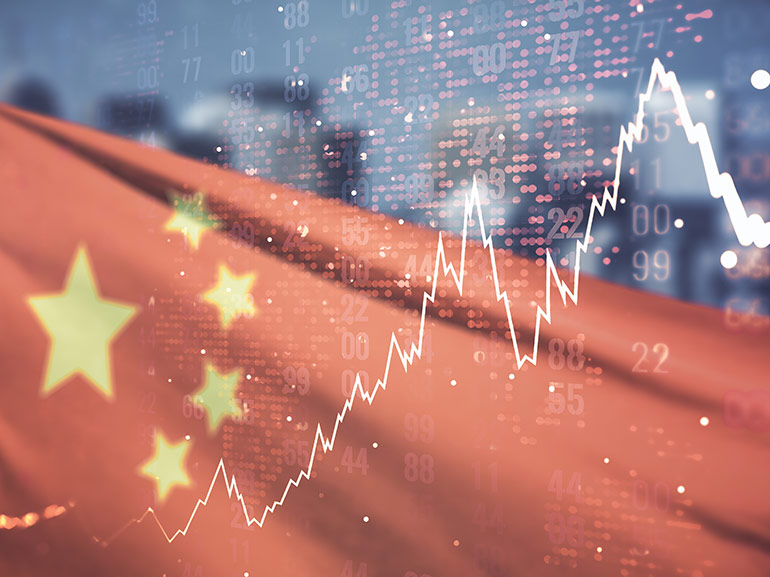Asian Markets Rally as China Unveils New Stimulus
The session kicked off on a sea of green across Asian indices following China's fresh stimulus measures on Wednesday, October 25, to support the government's goal of reaching 5% growth in 2023.
The policy steps include bond issuances, reserve ratio cuts for banks, lowering mortgage rates, relaxing home purchase restrictions, and guidelines to support the private sector.
Japan's Nikkei (Japan 225) index jumped over 1% on Wednesday, driven by strength in tech and industrial stocks, with the CSI300 surging 2.5% and Shanghai Composite indexes up 0.8% each, while the Hang Seng (Hong Kong 50).
However, concerns about the decline of private sector activity and the lack of long-term reforms needed for consumer-led growth remain, and equities have somewhat pared gains.

Markets React on Chinese Stimulus News
China's top parliament body has approved a 1 trillion yuan sovereign bond issue to prevent further fiscal tightening in China. The new bonds will help bolster China's economic recovery, according to Vice Finance Minister Zhu Zhongming.
The rare measures from Beijing were likely announced to address domestic market liquidity issues and curb recent stock market declines. Previous efforts to rescue the slumping stock market have fallen flat, and the deepening property crisis, including Country Garden Services Holdings’(6098.HK) default on a dollar bond, adds to the challenges. (Source:Bloomberg)
While the package aims to finance various platforms and offer relief in disaster and construction, it signals a pro-growth shift to sectors the Chinese government favours due to a lack of allocation amidst China's high debt-to-GDP ratio.
Details of China's New Stimulus Package
Beijing's policy measures include interest rate cuts, tax relief, infrastructure investment, support for the property sector, and policies to boost consumption and private investment.
The move comes against the backdrop of China's economic growth rebounding faster than expected in Q3, improving the chances that Beijing can meet its growth target for the year. The policy measures aim to help China meet its economic growth target of around 5% for 2023. China's economy had slowed to 4.9% between July and September, primarily due to a property crisis.
According to China's Vice Finance Minister Zhu Zhongming, the budget deficit is anticipated to increase to around 3.8% of GDP due to increased central government debt. The original target was only 3% of GDP.
Aside from the above policy measures, the Chinese central government-owned investment company Central Huijin also announced plans to buy exchange-traded funds (ETF) on Monday, which was also seen boosting market sentiment on Tuesday.
Notably, the government recognised the need for a sustainable recovery and has already pledged more support.
Influence on the Global Economic Landscape
Worries over a slowdown in China may have affected global markets in recent months, but the latest stimulus measures in September seem to have been received more positively as they appear to alleviate concerns over the country's economic growth.
China's most recent move on Wednesday is not expected to have a significant economic impact in the near term as the funds are not anticipated to be used until next year or even in the next two or three years. However, its effects depend heavily on follow-through. Some analysts expect a budget boost to lift GDP growth by 0.1% in Q4 and 0.5% in 2024.
China's fresh stimulus may provide a much-needed economic boost. As the world's second-largest economy, China's fiscal policy changes could drive demand for global emerging equity markets, including notable reactions to the Australian dollar (AUD/USD).
Conclusion
China's stimulus measures seem to reinforce its commitment to growth and global economic stability while highlighting the risks of high debt and overreliance on government intervention. Although China's new stimulus and market rally suggest they might continue driving global growth for the foreseeable future, their policy maneuvers will likely be felt by investors worldwide. Investors will closely monitor how Beijing implements and builds upon these initial measures.
